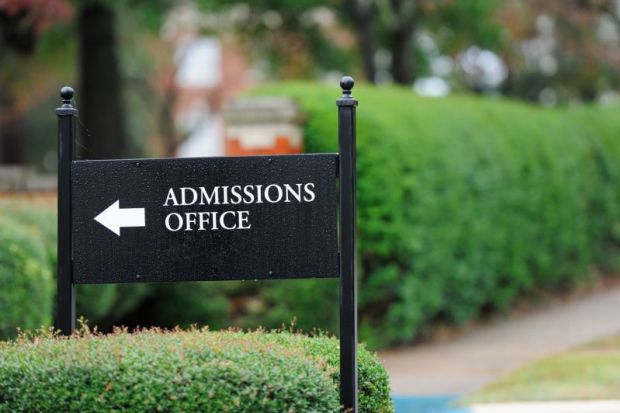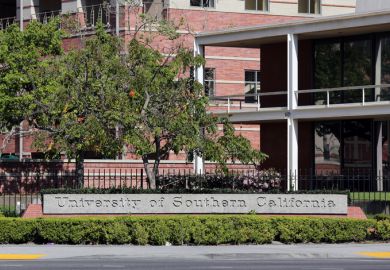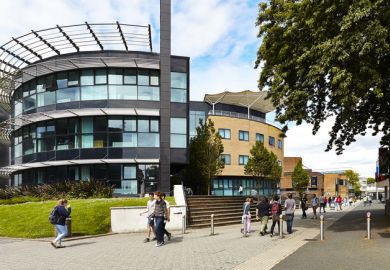The US college admissions scandal has neared its end with a head coach of University of Southern California water polo teams convicted of taking bribes in exchange for arranging student acceptances.
The coach, Jovan Vavic, led 16 men’s and women’s teams to national titles, and was charged with taking about $250,000 (£190,000) in bribes from two sets of parents in return for securing their children admission to USC on the pretence of being competitive water polo players.
His conviction, after a nearly month-long trial in federal court in Boston, leaves prosecutors with virtually a perfect record over the several dozen parents, coaches and others charged in the “Varsity Blues” scandal since the government announced it publicly in March 2019.
Altogether they won 54 guilty pleas or court convictions, one agreement to defer prosecution, and one case in which Donald Trump, as US president, awarded a pardon. Only one parent remains awaiting trial.
Mr Vavic was the only employee defendant – among 10 coaches and officials from seven top US universities – to stand trial rather than plead guilty. He argued that he only was trying to meet USC’s demands to build a top sports programme, and he contended the money he accepted was part of that strategy.
USC did have the deepest connections among several universities caught up in the scandal, with 33 students found to have been involved in admissions deceit and Mr Vavic among four USC employees convicted in the case.
The university also was repeatedly portrayed in testimony during trials as having fostered an atmosphere that stressed the importance of monetising its highly competitive sports operations.
Mr Vavic, however, was shown during his trial to have kept some of the bribe money for personal uses beyond the needs of his teams, and the federal jury took only half a day to convict him on charges of mail and wire fraud, and conspiracy to commit bribery and fraud.
Beyond USC, universities caught up in the scandal include Stanford, Yale, Georgetown and Wake Forest. The one remaining defendant is Amin Khoury, the son of an aerospace industry tycoon, who denies paying to have his daughter falsely presented as a competitive tennis player to gain entry to Georgetown.
Federal investigators said the overall scandal was led by William Singer, a Los Angeles college admissions counsellor who included bribe-based options to his customers. Mr Singer primarily used the ability of cooperating sports coaches to designate recruits for priority admission, although he also provided some applicants with falsified admissions tests, prosecutors said.
The applicants generally were not told of the scheme, and universities have made a mix of fact-specific decisions about whether to let such students remain enrolled.
One Singer partner convicted of taking admissions tests on behalf of such students, Mark Riddell, received a four-month prison sentence from a federal judge in Boston at same time Mr Vavic’s trial was concluding in front of a different judge.
Mr Vavic faces as many as 20 years in prison when sentenced in July, although he is likely to get far less. Most people charged in the scandal pleaded guilty and received prison sentences of a few months. They include the actresses Lori Loughlin and Felicity Huffman, who already have served their terms.
Mr Singer helped trap many of his parent-customers by recording calls with them after investigators learned of his activities, which were understood to involve more than 750 families and $25 million in bribes.
He faces as many as 65 years in prison, although also with expectations of a much lighter sentence owing to his cooperation.
Prosecutors marked the milestone of Mr Vavic’s conviction by holding a news briefing at which the US attorney for Massachusetts, Rachael Rollins, expressed her disgust over the cheating and declared that “justice has been served” in the overall scandal. She called on US universities, however, to do more to prevent such actions from occurring in the future.
USC has denied responsibility for encouraging criminal activity, and it has announced several steps it has taken in response to the scandal. They included adding new layers of oversight to the process of designating applicants as sports recruits, and instituting random audits of its sports team rosters.
Register to continue
Why register?
- Registration is free and only takes a moment
- Once registered, you can read 3 articles a month
- Sign up for our newsletter
Subscribe
Or subscribe for unlimited access to:
- Unlimited access to news, views, insights & reviews
- Digital editions
- Digital access to THE’s university and college rankings analysis
Already registered or a current subscriber?







